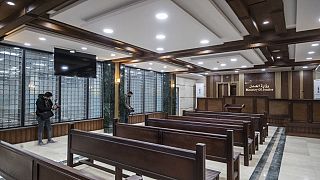Tunisia
The Tunisian authority responsible for rendering justice to victims of dictatorship said Friday that, it has agreed with the government to bring its work to conclusion within a few months.
The Truth and Dignity Commission decided to extend its own mandate until the end of December, which ends on May 31, but this decision was rejected in a disputed vote in Parliament.
Created in 2014 in the wake of the fall of dictator Zine el Abidine Ben Ali and post-revolutionary unrest, the Truth and Dignity Institute has a mission to “reveal the truth about the human rights violations committed between July 1, 1955 and December 31, 2013 “.
At a news conference in Tunis, president of the commission, Sihem Ben Sedrine said she is determined to fight setbacks.
“The government is committed to bringing the process to a successful conclusion, but it is asking the truth and dignity commission to speed up a little bit. This does not bother us at all. We are accelerating our pace of work and have no interest delaying”, Sedrine said.
The truth and dignity commission must collect and disseminate testimonies, return suspected perpetrators of rape, murder, torture or corruption to specialized courts, and recommend measures to prevent these crimes from recurring.
The commission faced political resistance with the return of former regime leaders to power, internal disputes as well as the lack of cooperation by state institutions.
Since the beginning of its activities, the commission has received more than 62,000 cases and heard about 50,000 people, but did not send its first cases to court until March.
The government has indicated that it would consider the work of the commission legally closed on 31 May, while leaving the time to perform a “handover”, so that “the executioners are brought to justice, victims compensated and reports “handed over to the authorities.
Tunisian Minister for Relations with Independent Authorities, Mehdi Ben Gharbia told AFP , “the government has the concern to complete this process”.
Since March, the truth and dignity commission has referred at least 32 cases of “serious human rights violations” to specialized courts.
The first trial heard by the commission will open before the specialized court of Gabes in the south on Tuesday. It involves Kamel Matmati, an Islamist who died under torture in October 1991 under the dictatorship of Zine el Abidine Ben Ali.
AFP











Go to video
Tunisia jails opponents, critics of President Saied
Go to video
Uganda plans law to allow military prosecution of civilians
Go to video
The EU moves to fast-track asylum claims by migrants from 7 countries to speed deportation
Go to video
Meta boss Mark Zuckerberg takes the stand in antitrust trial
Go to video
Mauritius: Ex-finance minister released on bail after corruption charges
Go to video
Ex-member of former Gambia dictator's military unit is on trial in the US for torture